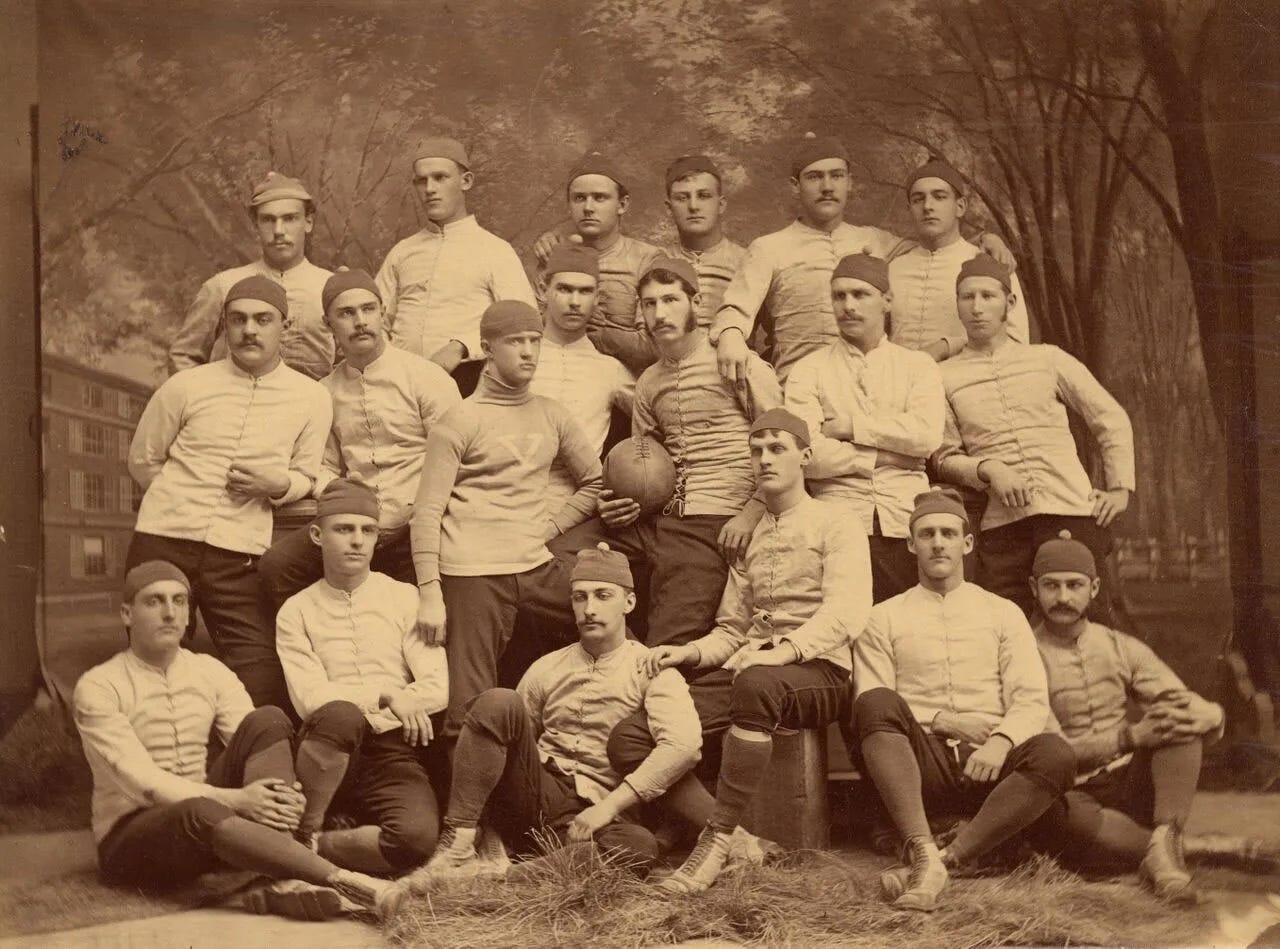Today's Tidbit... Walter Camp, Football's First Professional
Walter Camp was a busy boy in 1883 with all kinds of people offering him money for his services. For football's sake, its a good thing he turned down some of the opportunities presented to him.
Camp entered the collegiate sporting scene in 1876 when he enrolled at Yale and quickly earned a spot on the rugby / football team. He retained that spot for the next seven years, four during his undergraduate days and three while attending Yale Medical School, where he dropped out in 1883. So, what does one do after dropping out of medical school? If you were Walter Camp, you considered several job offers.

Camp, of course, was a fine all-around athlete, excelling in football, baseball, and other sports. He captained Yale's freshmen baseball team, playing left field and pitching for the varsity for several years, and is supposed to have been among the first pitchers to master the curve ball. Camp was among Yale's representatives at the American College Baseball Association meetings in February 1883 as he began transitioning from his role as a player to being an administrator and coach.
The Father of Football carried on a sordid affair with the game of baseball, though the affair did not last long, and Walter claimed it did not really mean anything. Nevertheless, Nick Young, the president of baseball's National League from 1885 to 1902, offered Camp a job umpiring baseball games for the American Association. Camp turned him down, and later, in 1883, Camp received an offer to manage the American Association's New York Metropolitans during the 1884 season. He also turned down that job, indicating he wanted to return to medical school, though that did not happen either.
At some point in 1883, Camp began working for the Manhattan Watch Company, a company with ties to the New Haven Clock Company, which Camp joined several years later, rising to become its CEO and Chairman of the Board.
Still, as much as he enjoyed the clock business, what really made him tick was sports, especially football. Having been prominent in Yale athletics on and off the field, Camp helped grow the athletic program to the point that Yale's athletic association needed an administrator by 1883, and they were willing to pay $1,200 per year for someone to fill the role. They selected Camp as the administrator, with the football and baseball programs contributing $300 each; another $300 came from Yale's athletic association and $300 from other sources.
Since Yale appears to have been the first school to make or risk enough money on its athletic program to pay someone to manage it, Camp became football's first professional, though not the first professional football player, a distinction held by another Yalie, Pudge Heffelfinger.
Given his long-term influence on the game, football is fortunate that Camp never became a big league umpire or manager since his involvement on the diamond might have limited the time he spent on the gridiron. But it did not happen, and by 1886, Camp was already being called the Father of Football.
Click here for options on how to support this site beyond a free subscription.





What made him tick!!
WC was definitely a talented man. Almost fitting to his dedication to the that he died at the 1925 rules convention.